Interview Series - Insights from Students -
- Name
- Jianli GUO
- Nationality
- China
- School at UTokyo
- Research Center for Advanced Science and Technology
- Academic Status
- Project Researcher
- Date of enrollment UTokyo
- 2016- Research Students, 2017- Master & Doctoral Program, 2023- Project Researcher
- The language used for the interview
- Japanese

From research student to PhD program, and finally a researcher at UTokyo
The main reason we asked for this interview was because you have been diligently participating in the advanced class this semester. But after we reached out to you, we remembered while looking at your long history at UTokyo that you took Class 2 (Beginner) of the Intensive Japanese Course in 2017, didn’t you?
Yes, that’s right. I came to Japan in 2016. At that time, I was a research student and had the graduate school entrance exam coming up in a year, so I didn’t have time to study Japanese. But after entering the master’s program in 2017, I decided to start studying Japanese hard, and that’s when I took the intensive course.
It’s been about seven years since then. Did you originally plan to stay in Japan for this long?
No, I didn’t plan to stay so long. Originally, I just took Japanese as a second foreign language at university. Since my major was precision engineering, my options were either Japan or Germany, and I chose Japan because it was geographically closer. At the time, I had the chance to get a lot of information about studying abroad from a professor who had studied in Japan, which became a good reason for me to study here. After coming to Japan and entering the master’s program, I was torn between getting a job or continuing my studies, but thanks to my family’s understanding and the influence of my seniors, I ended up pursuing the path of a researcher.
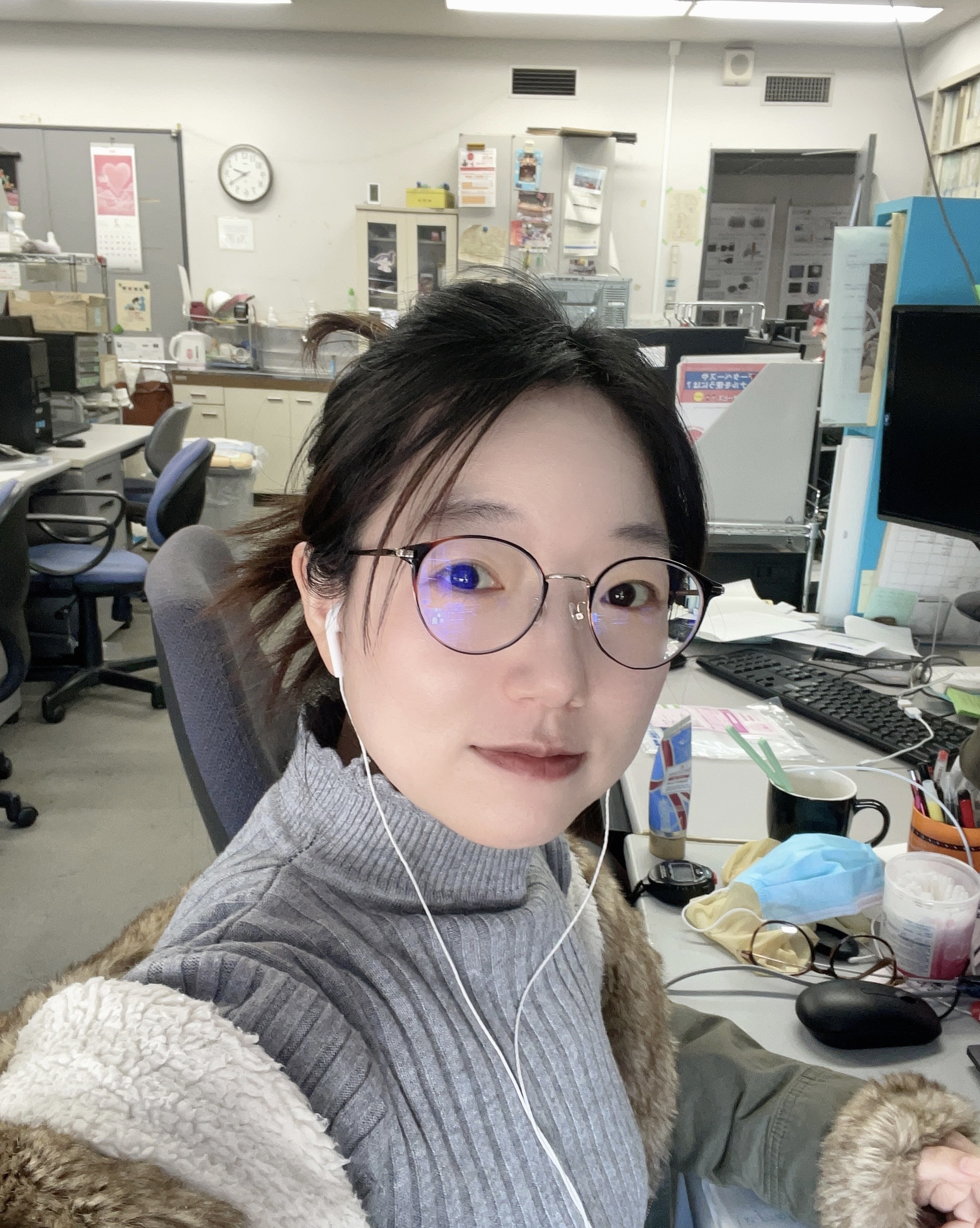
Surrounded almost entirely by Japanese
You studied Japanese as a second foreign language in your home country, then took an intensive course at UTokyo for one semester. How have you been studying Japanese since then?
Mostly self-study. In my lab, everything—really, my daily life, the specialized courses, communication in the lab, and research presentations—was all in Japanese.
Wow, having everything in Japanese in a science lab might be a bit unusual at UTokyo these days.
Yes, that’s right. Since I was the only international student in the lab, I was in a situation where I had no choice but to study Japanese. However, being the only one also meant that I was always with my professors and Japanese students. I often introduced them to Chinese restaurants and went out for meals with them, which made me a bit of a mood maker. After that, I studied for the JLPT and passed the N1, and recently, I even got my driver’s license in Japanese.
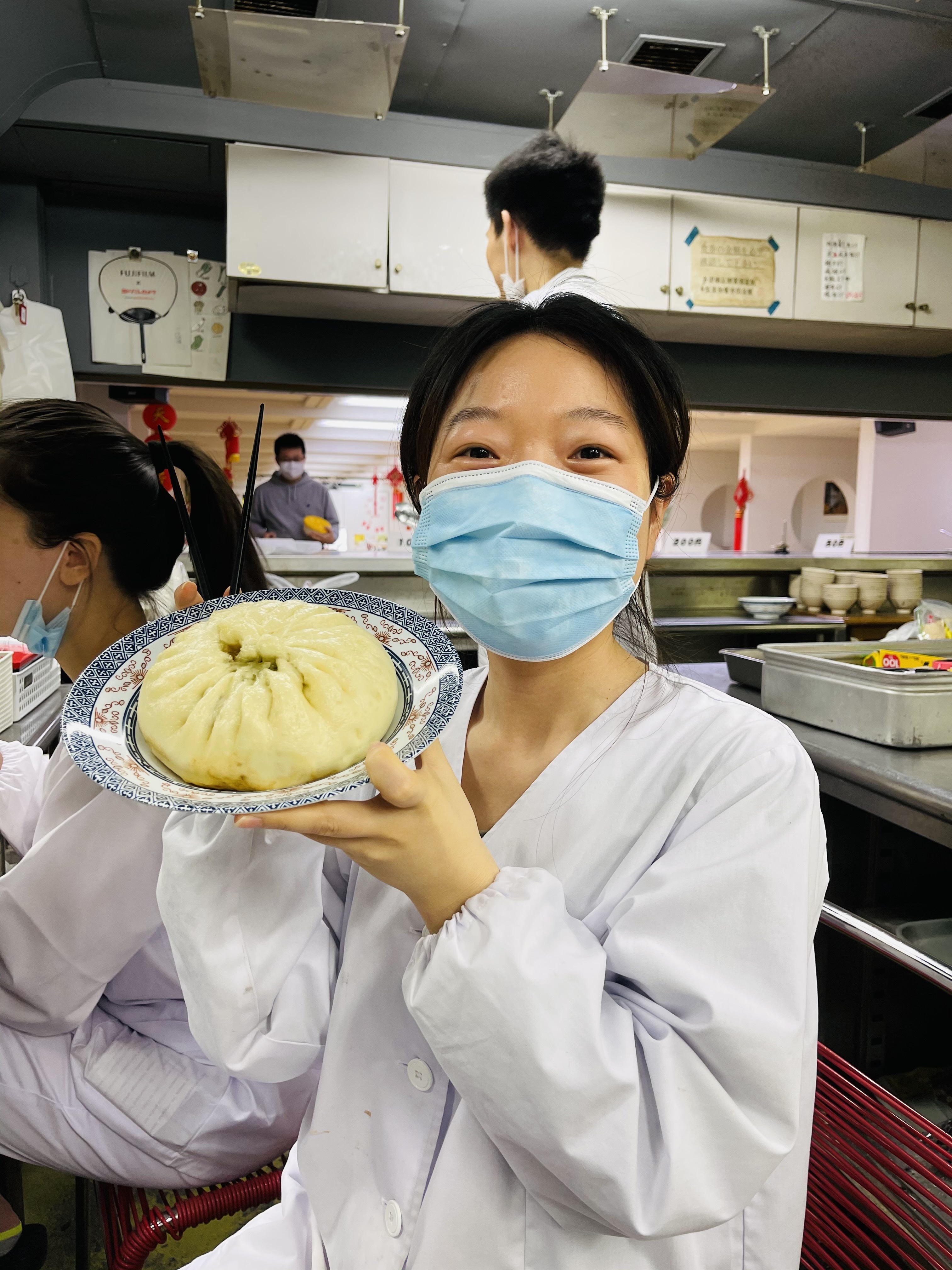
Personality can’t change, but with effort, language can be controlled
So, even though you’ve been studying on your own until now, why did you suddenly take so many advanced classes this semester? And you were almost always present, weren’t you?
My status changed from “student” to “researcher.” Since I might be in a position to teach classes in my future career, I felt I needed a higher level of Japanese. Additionally, I thought that interacting with professors would require a more advanced level of Japanese, so I decided to take advanced classes.
What do you mean by “more advanced level of Japanese”?
I think it might mean being able to control the language I use. For example, I can’t really change things like this smile or this personality, which I feel don’t suit me as a teacher and would prefer to get rid of, but I can’t. But when it comes to language, if I work hard, I can control it. If I can reach a level where I can skillfully switch between casual and formal language as needed, I feel like I could become a better version of myself.
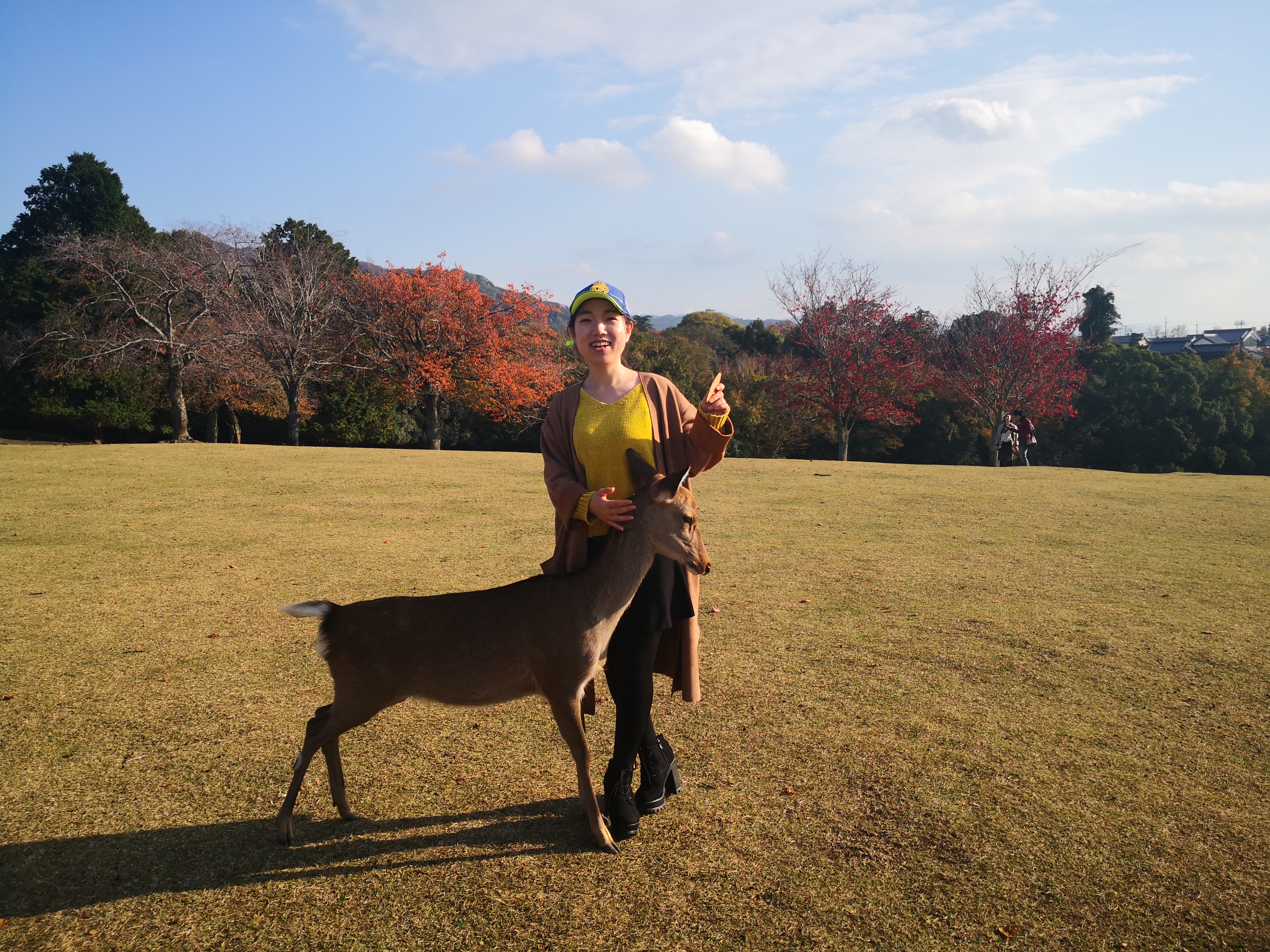
The thrill of communicating with a survival mindset
By the way, during your time living in Japan, have there been any moments when understanding Japanese made you happy or left a strong impression on you?
The most memorable experience was with the phrase “ii desu” (it can mean both “yes, please” and “no, thank you”). My supervising professor was asked by a foreign cashier at a convenience store, “Would you like a bag?,” and when the professor replied “ii desu,” it wasn’t understood and was taken to mean the opposite. While telling me this story, the professor said, “You never make mistakes like that. You understand things well.” I was really happy to be praised, so it left a strong impression on me.
Then, how about any challenging or troublesome experiences?
Definitely not understanding questions when they’re asked. Sometimes, if I’m not focused, I can’t catch what’s being said, which can be difficult. However, in daily life, I don’t encounter many problems anymore.
That’s good.
I actually enjoy going to unfamiliar places and doing my best to get by with a little bit of self-learned language. I find it fun to understand just a bit of the unfamiliar language and to try to communicate, even if I don’t fully understand or can’t communicate perfectly. I enjoy the process of trying to understand and connect. That’s why I don’t often feel troubled in those situations.
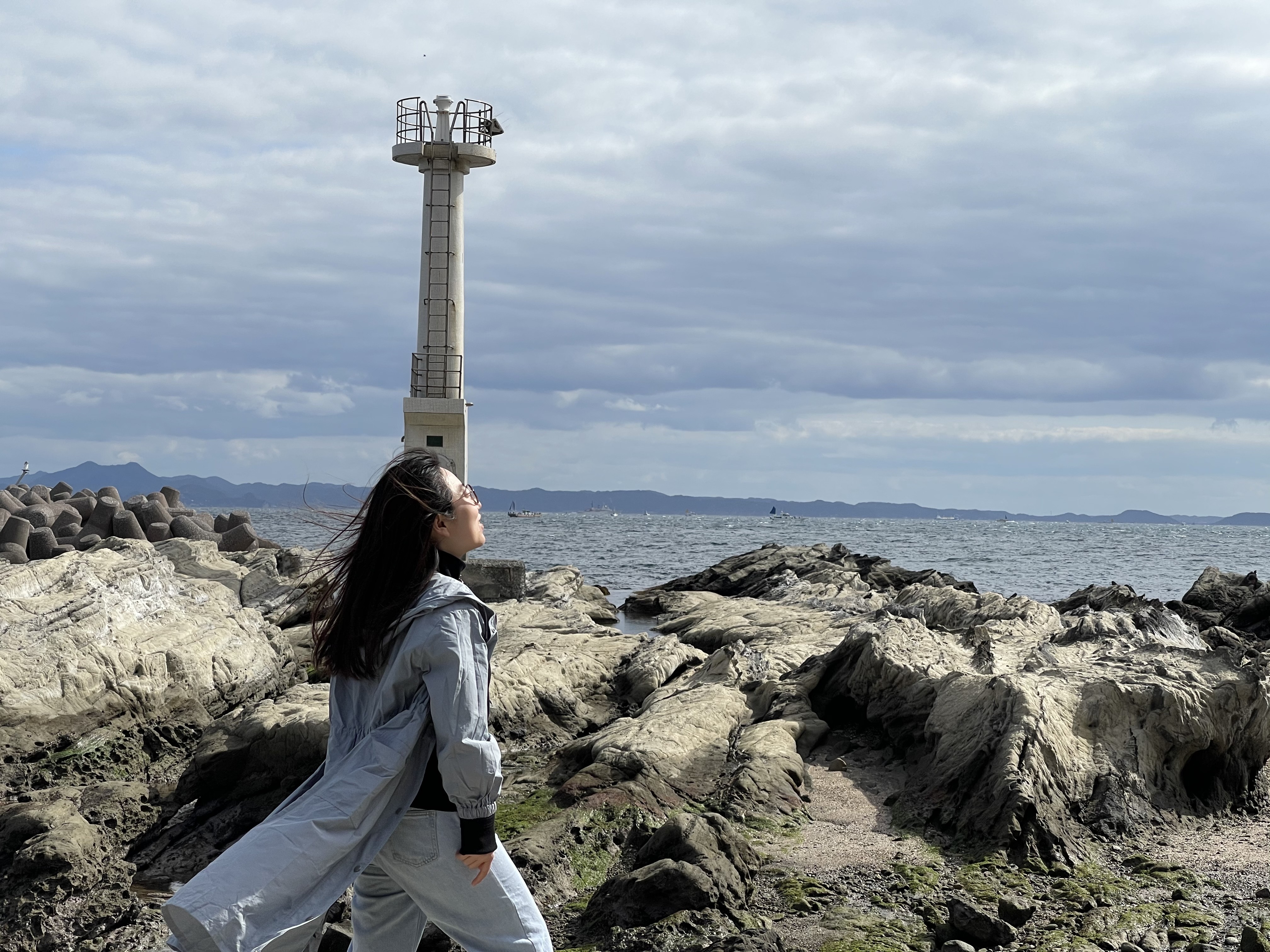
Better communication comes when you understand the other’s native language
I see. So, for you, is studying Japanese driven more by curiosity or necessity?
Initially, when I studied Japanese as a second foreign language, it was driven by curiosity. However, now that I need to use Japanese for work and want to improve my proficiency, my motivation is more about necessity.
There is also the idea that if you can speak English, you don’t need Japanese. What are your thoughts on that?
Indeed, in my current situation, where my job is at a university, it’s not a big problem if I don’t understand Japanese as long as I can speak English. However, I still believe that students should study Japanese. Understanding Japanese makes life more enjoyable. For example, it allows you to work part-time and make Japanese friends, and it can be useful for employment. Fundamentally, I think it’s generally a good idea to study the language of the country you’re in, regardless of your position. It’s one of the joys of life.
Could you tell me a bit more?
I’m not a native English speaker, and the same goes for the Japanese people who are also nonnative speakers. When we communicate in English, it often ends up being limited to the minimum necessary information. However, if we use the other person’s native language, which in this case is Japanese, I can receive much more detailed information from them.
I see. Is that based on your own experience?
Yes. And can’t this also be understood from a different perspective? For example, if I were in China and a foreigner tried to speak to me in Chinese, I’d be able to communicate a lot more. But if they spoke in English, I wouldn’t be able to convey as much, and I might not try as hard to communicate thoroughly.
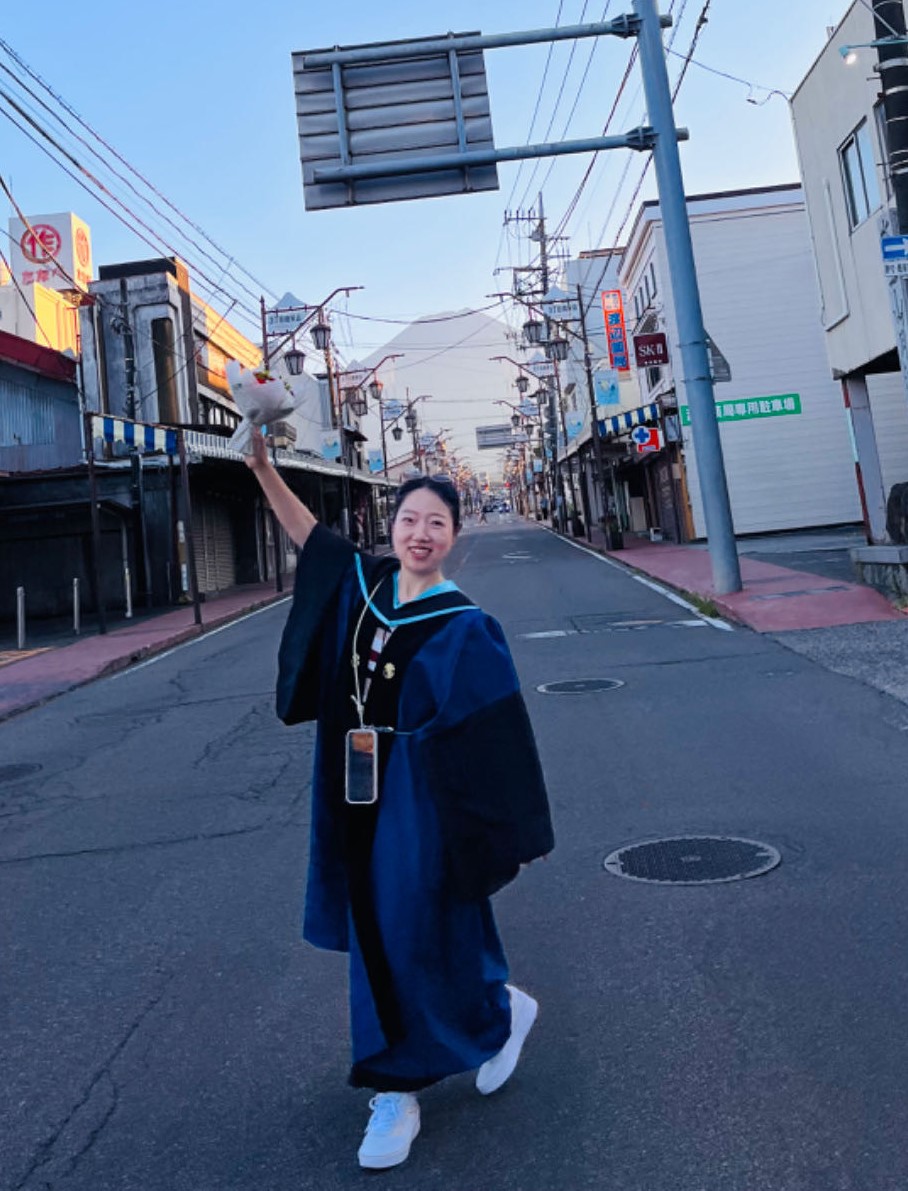
I see. I understand well now. Thank you for the insightful discussion.